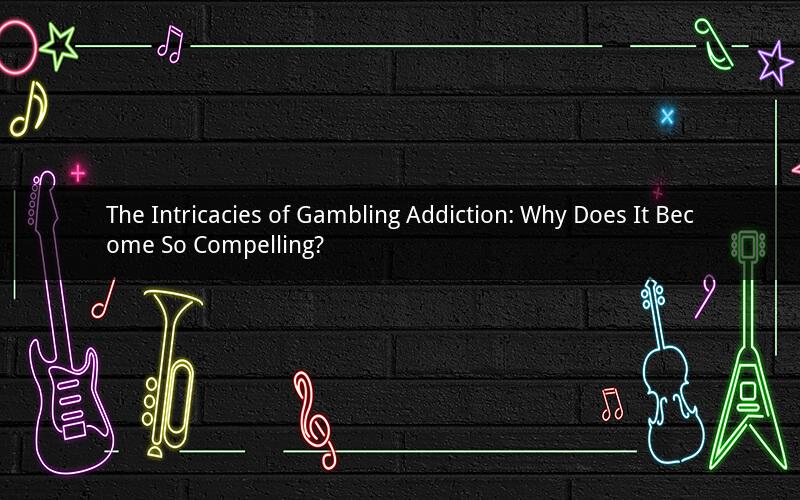
Gambling, a centuries-old activity, has evolved from a simple pastime to a multifaceted industry that generates billions of dollars annually. While many people engage in gambling as a form of entertainment, others find themselves ensnared in its web of addiction. The question arises: why does gambling become addictive? This article delves into the psychological, social, and environmental factors that contribute to the development of gambling addiction.
1. The Psychological Factors
a. Dopamine and the Brain's Reward System
Gambling triggers the release of dopamine, a neurotransmitter associated with pleasure and reward. When individuals win, their brains receive a surge of dopamine, reinforcing the behavior and making them seek out more gambling experiences. Over time, the brain becomes accustomed to this reward, leading to a heightened desire for gambling.
b. The Thrill of Risk and the Sense of Control
Gambling provides a sense of control and excitement, as individuals believe they can influence the outcome of games. This thrill of risk can be highly addictive, as people seek to recapture the same feelings of excitement and control that they experienced during previous gambling sessions.
2. The Social Factors
a. Peer Influence and Social Pressure
Social factors play a significant role in the development of gambling addiction. Peer influence and social pressure can lead individuals to engage in gambling, as they want to fit in with their friends or participate in group activities. Additionally, social gatherings that revolve around gambling can exacerbate the problem.
b. Family Dynamics and Role Models
Family dynamics and role models can also contribute to the development of gambling addiction. If individuals grow up in a household where gambling is a regular occurrence, they may be more prone to developing an addiction themselves. Similarly, individuals who have role models, such as parents or siblings, who engage in excessive gambling may be more likely to follow suit.
3. The Environmental Factors
a. Accessibility and Availability
The accessibility and availability of gambling venues have increased significantly in recent years. With the advent of online gambling and the proliferation of casinos, individuals have easier access to gambling opportunities. This increased accessibility can make it more difficult for individuals to resist the temptation to gamble.
b. Marketing and Advertising
The marketing and advertising of gambling have become increasingly sophisticated. Companies use various techniques to entice individuals to engage in gambling, such as offering bonuses, promotions, and free bets. This marketing can create a sense of urgency and make gambling seem more appealing, leading to increased rates of addiction.
4. The Role of Personal Factors
a. Personality Traits
Certain personality traits, such as impulsivity and thrill-seeking, can make individuals more susceptible to gambling addiction. People with these traits may be more drawn to the excitement and risk associated with gambling, making it easier for them to develop an addiction.
b. Mental Health Issues
Individuals with certain mental health issues, such as depression, anxiety, and bipolar disorder, may be more prone to developing gambling addiction. These issues can lead individuals to seek out gambling as a form of escape or self-medication, which can exacerbate their condition.
Frequently Asked Questions
Q1: Can gambling addiction be cured?
A1: While there is no guaranteed cure for gambling addiction, treatment programs and support groups can help individuals manage their addiction and reduce the risk of relapse.
Q2: Is online gambling more addictive than traditional gambling?
A2: Online gambling can be more addictive due to its convenience and accessibility. The ease of access to online gambling platforms can make it more difficult for individuals to control their gambling behavior.
Q3: Can a person become addicted to gambling without any risk factors?
A3: While it is possible for individuals without risk factors to develop a gambling addiction, the presence of risk factors such as personality traits, mental health issues, and environmental influences can significantly increase the likelihood of addiction.
Q4: How can I help a loved one with a gambling addiction?
A4: You can help a loved one with a gambling addiction by offering support, encouraging them to seek professional help, and creating a safe and non-judgmental environment for them to express their feelings.
Q5: Is there a genetic component to gambling addiction?
A5: Yes, research suggests that there is a genetic component to gambling addiction. Individuals with a family history of gambling addiction may be more susceptible to developing the condition themselves.